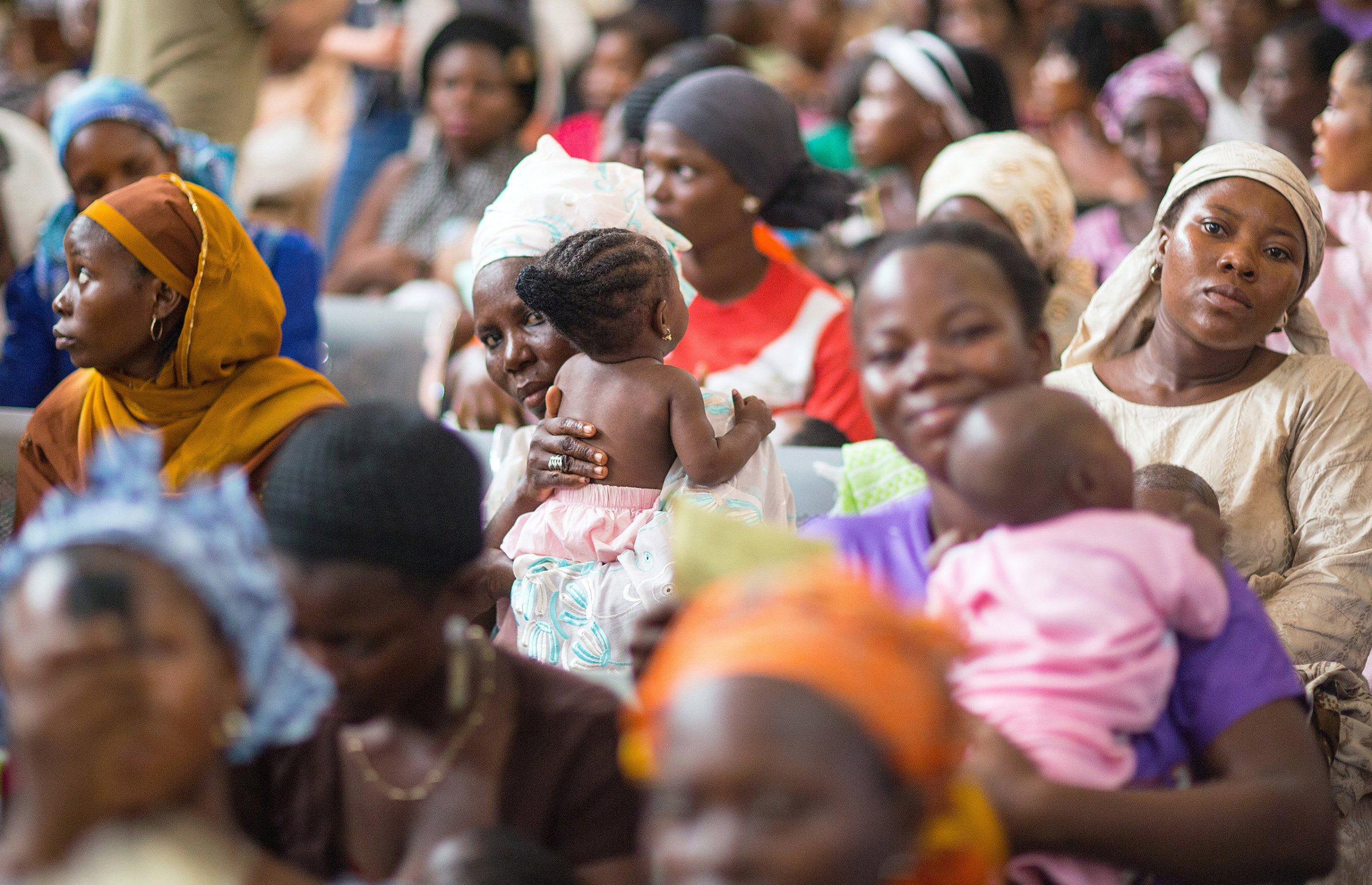
John Hewko is General Secretary of Rotary International and the Rotary Foundation.
If given the choice, would you reject a safe vaccine that could save your life? Unfortunately, some say yes. But one rejection is too many when public health is jeopardized by risks such as polio, a paralyzing disease that once struck 45,000 people per year in the U.S., and could easily return if not stamped out globally.
What can be done to help individuals make informed, safe choices for themselves, their families and communities?
We’ve all seen explicit, no-holds-barred government advertising warning of communicable and chronic diseases, or dangerous behaviors, such as cigarette packs showing graphic photos of cancer sufferers or the anti-drunk driving commercials showing the gory aftermath of car crashes. Shock tactics have long been a part of public-health media campaigns, but their effectiveness is hard to judge, particularly when combined with other deterrents, such as higher cigarette taxes, or field sobriety tests.
Studies on the psychology of vaccination indicate that “education reduced misbelief, but it also reduced the likelihood that people already uneasy about the vaccine would plan to get it.”
This is because fear is part of the problem in the minds of non-vaccinators, or those undecided about whether to immunize their children. Fear drove the measles outbreak to record levels last year in the U.S. A parent’s fear of a vaccine harming a (for the moment) healthy child can cloud all the overwhelming medical evidence that vaccines are safe and effective.
Lack of information or misinformation can often be easily remedied, but addressing fear and conspiracy is not easy.
Governments conceivably could force everyone to be vaccinated, or they can apply public and social pressure when self-interest clashes with the common good. But coercing people out of beliefs driven by fear is a bit like dismissing a child’s terror about a nightmare. The fear might be real, even if there’s no monster under the bed.
So laws, shock tactics, coercion or shaming are not the answer. The solution lies in building trust and relationships. The Global Polio Eradication Initiative (GPEI) has attempted to win over tens of thousands of parents wary of the polio vaccine in developing countries. The core partners of the GPEI are Rotary, the World Health Organization, the U.S. Centers for Disease Control and Prevention, and the United Nations Children’s Fund, joined more recently by the Bill & Melinda Gates Foundation. Polio cases have been reduced by 99.9% since the initiative began in 1988, when polio was endemic in 125 countries. The initiative is on track to consign polio to the history books, with only two countries—Pakistan and Afghanistan—where polio has never been stopped.
The authorities in Pakistan and Nigeria faced the reality that millions had not received the vaccine. In some communities, Muslim extremists cast polio immunization as a Western plot to sicken or sterilize local children, which stoked the fears of many parents, and even issued fatwas, a ruling on a point of Islamic law given by a recognized authority, against vaccination.
To counter this, the GPEI appealed to specialist bodies of Islamic scholars. In Pakistan, national Islamic leaders have issued 28 fatwas promoting the safety of the vaccine and the importance of vaccinating children. With local support, including female health workers going door to door to provide vaccination, more than 850,000 children have been vaccinated in Pakistan since 2012.
In Nigeria, thousands of volunteers engaged with local mallams (Koranic experts) and school teachers to educate communities, raise support for vaccination, and build trust in health services. Nigeria was officially removed from the polio-endemic list last month, despite the terror of Boko Haram, which has killed polio health workers to prevent vaccination.
The engagement approach is catching on. Recent government ad campaigns on preventable diseases in the West show signs of a strong shift to positive reinforcement and softer messaging, rather than fear-mongering.
The British government has set up a behavioral insights team, which has recruited an extra 100,000 organ donors a year, reduced drop-out rates in schools, and reduced medication errors in hospitals. The methods are often very subtle — re-wording an e-mail or text message — but the outcomes are dramatic. The fundamental goal is to empower people to make better choices for themselves and their society — simple but transformative.
We must replicate the culturally sensitive engagement tactics used in Pakistan and Nigeria to assuage the fears of anti-vaxxers in the U.S. where the refusal phenomenon is a serious problem, as it once was in polio-endemic countries. Seattle’s polio immunization rate is currently lower than places like Rwanda, Zimbabwe and Iran. If we can learn from successes of the developing world, we can protect children here from preventable diseases.
On World Polio Day, we aim to vaccinate every child possible and eradicate this disease once and for all. With trust, not fear, we can help more children to live, breathe and walk.
More Must-Reads from TIME
- Cybersecurity Experts Are Sounding the Alarm on DOGE
- Meet the 2025 Women of the Year
- The Harsh Truth About Disability Inclusion
- Why Do More Young Adults Have Cancer?
- Colman Domingo Leads With Radical Love
- How to Get Better at Doing Things Alone
- Michelle Zauner Stares Down the Darkness
Contact us at letters@time.com